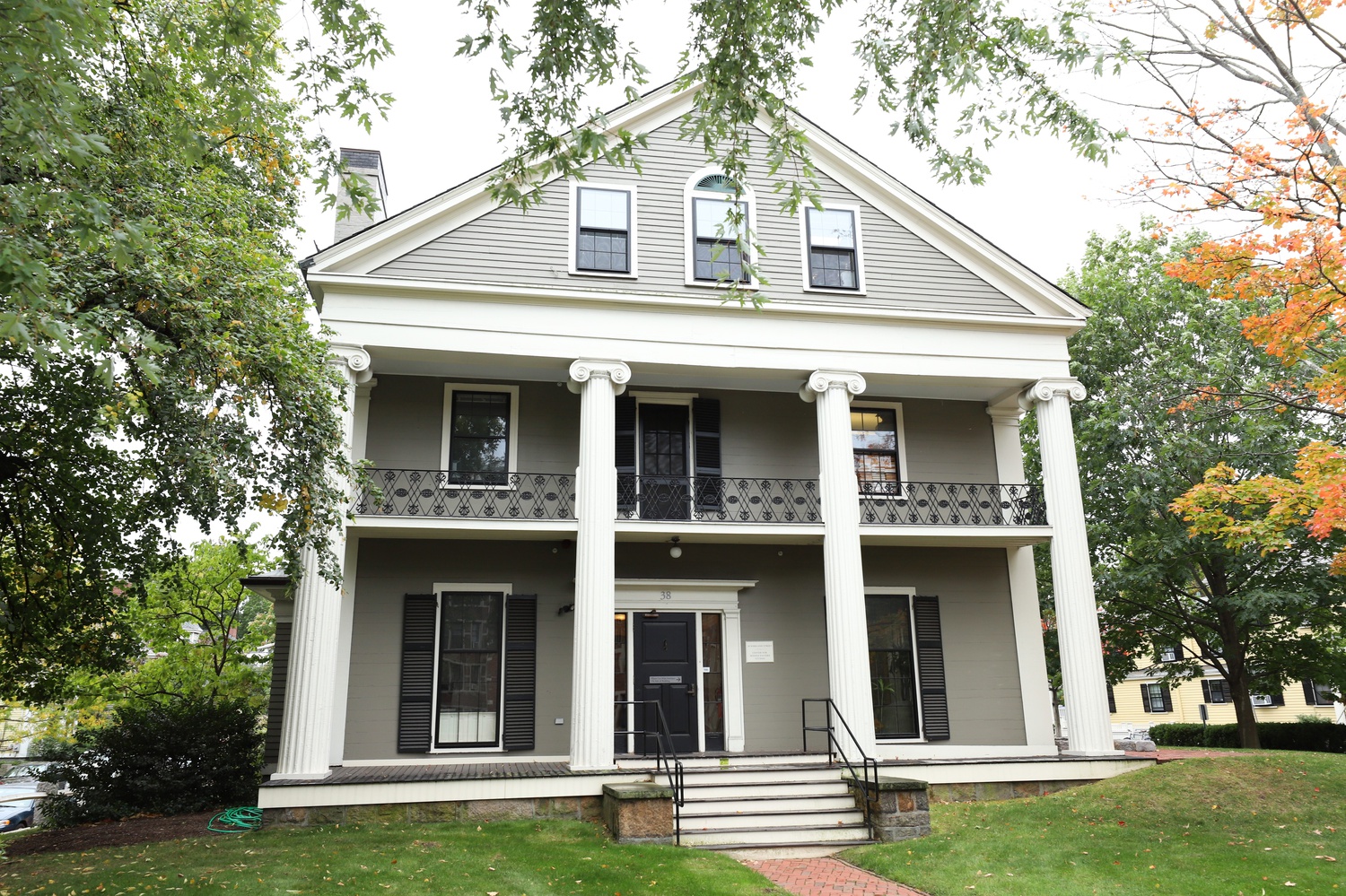
News
Summers Will Not Finish Semester of Teaching as Harvard Investigates Epstein Ties

News
Harvard College Students Report Favoring Divestment from Israel in HUA Survey

News
‘He Should Resign’: Harvard Undergrads Take Hard Line Against Summers Over Epstein Scandal

News
Harvard To Launch New Investigation Into Epstein’s Ties to Summers, Other University Affiliates

News
Harvard Students To Vote on Divestment From Israel in Inaugural HUA Election Survey
Center for Middle Eastern Studies Leaders Dismissed for Alleged Lack of Balance in Events on Palestine, Harvard AAUP Says

Interim Harvard Dean of Social Science David M. Cutler ’87 dismissed the Center for Middle Eastern Studies’ faculty leaders last week because he felt their programming on Palestine was insufficiently balanced, Harvard’s chapter of the American Association of University Professors alleged in a Monday press release.
A faculty member with knowledge of the conversations between Cutler and the center’s leaders confirmed Harvard AAUP’s account to The Crimson. The Crimson previously reported on Friday that the center’s director, Turkish studies professor Cemal Kafadar, and associate director, History assistant professor Rosie Bsheer, had been forced to leave their posts.
In those conversations, the AAUP wrote, Cutler specifically referenced two CMES events in the spring: a panel titled “An Ongoing Threat: Israel’s War on Lebanon, Past and Present” and a panel that CMES co-sponsored at the Harvard School of Public Health on “Attacks on children in Gaza.”
Several Harvard affiliates had previously criticized the center’s events, alleging that they platformed antisemitism.
Early last month, former Harvard President Lawrence H. Summers wrote in a post on X that he felt the panel on Lebanon was “very likely” antisemitic under the International Holocaust Remembrance Alliance’s definition of antisemitism. The University adopted IHRA’s definition of antisemitism in January as part of a settlement with a group of Jewish Harvard students suing the University over alleged “severe” antisemitism on campus.
Faculty of Arts and Sciences spokesperson James M. Chisholm wrote in a statement that Cutler disputed the AAUP’s characterization of his discussions with the center’s leaders, including the claim that he had specifically cited the two CMES events.
“Dean Cutler raised the issue of ensuring more voices are heard in the study of the Middle East. He explicitly disputes any portrayal of him attempting to limit certain points of view,” Chisholm wrote.
In their Monday release, Harvard AAUP condemned the CMES dismissals, writing that they infringed on academic freedom. The faculty group called on the FAS to release “any reports or evaluations” detailing how CMES had failed to meet the school’s standards for balance in their programming.
The statement asserted that CMES had hosted a “wide range of programming” over the past several years and argued that requiring a complete balance of topics and ideologies would amount to “an impossible and inappropriate standard” for any one academic program to meet.
The group also demanded that the administration reinstate Kafadar and Bsheer to their posts at CMES and issue a statement defending the “intellectual autonomy of academic centers.”
“Not only has such a standard never been required before of any other centers, but the standard itself, if real, would be a new ideological attempt by critics of the university to undermine its faculty’s subject-area expertise and to dictate what its faculty teaches,” the statement read.
Though faculty members — at Harvard and elsewhere — were largely critical of the decision to dismiss Bsheer and Kafadar, there were some who cheered the move online.
“Going into Shabbat with some good news,” Rabbi David J. Wolpe — a former Harvard Divinity School visiting scholar who resigned from Harvard’s antisemitism advisory group in the fall of 2023 — wrote in a Friday post on X.
—Staff writer William C. Mao can be reached at william.mao@thecrimson.com. Follow him on X @williamcmao.
—Staff writer Veronica H. Paulus can be reached at veronica.paulus@thecrimson.com. Follow her on X @VeronicaHPaulus.
Want to keep up with breaking news? Subscribe to our email newsletter.
